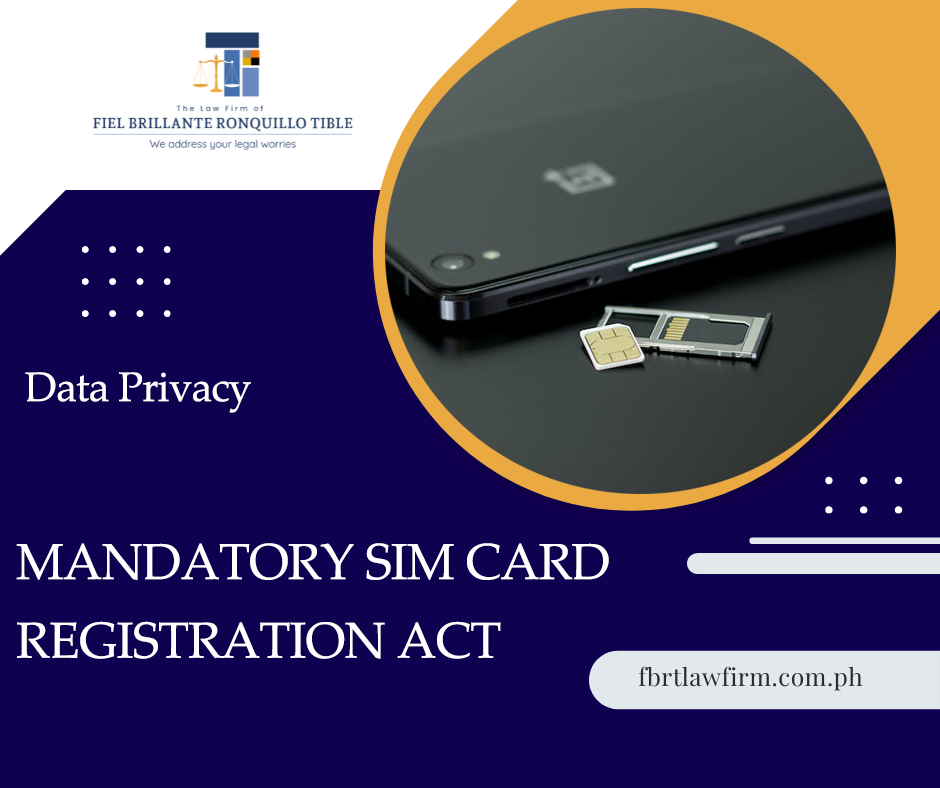A news article published by the Inquirer on May 23, 2022, revealed that the Senate has approved on third and final reading Senate Bill No. 2450 or the bill pressing for the permanent validity of birth, death, and marriage certificates.
Why do we need a law mandating the permanent validity of birth, death, and marriage certificates? Is it not a fact that the information in the birth, death, and marriage certificates does not change? Do they expire?
As proof of your identity, government agencies or private companies require you to submit birth, death, or marriage certificates.
If you want to open a bank account, the bank will require you to submit two valid I.D.s and other documents. But then, to get a valid I.D., the concerned agency (DFA for passport, LTO for driver’s license, BIR for TIN ID, etc.) would require you to submit a birth certificate and, if you are married, a marriage certificate. And the “other documents” that the banks need usually refer to a birth certificate.
Suppose you want to make a life insurance claim. In that case, the insurance company will ask you to submit the death certificate of the insurance holder as proof of death, your birth certificate to prove your relationship with the insurance holder, and sometimes the marriage certificate of your parents to prove their marital status. In addition, if you have siblings, you will need to obtain and submit their birth certificates.
Before we discuss the importance of having a permanent validity for our birth, death, and marriage certificates, let us first discuss each document’s importance.
We must remember that our birth, death, and marriage certificates are considered public documents. Therefore, they are prima facie evidence of the truth of the facts contained therein. Prima facie evidence means that, on its face, people can rely on the facts or information stated in these documents and consider them to be true, unless there is contrary evidence.
Importance of Birth Registration and Birth Certificate
Imagine being born into this world without your birth registered in the civil registry. Can you even claim that you exist? Of course, your existence does not depend on your birth registration. But can you imagine what the consequences are if your birth was not registered?
UNICEF considers birth registration as a fundamental human right. It says, “Not only is birth registration a fundamental human right, it also helps ensure that children’s other rights are upheld – like the rights to protection from violence, and essential social services like health care and justice.”
UNICEF has also illustrated the dangers for a child without a birth certificate:
- Early Marriage and Forced Labor. “Without a birth certificate, children are unable to prove their age, which puts them at a much higher risk of being forced into early marriage or the labour market, or recruited into armed forces.”
- Risk of Statelessness. “It can also help protect migrant and refugee children against family separation, trafficking and illegal adoption. Without it, these children are at a much higher risk of statelessness, meaning they do not have legal ties to any country, including a nationality.”
- Inadequate Access to Healthcare Services. “Without a birth certificate, many children can’t get routine vaccines and other healthcare services.”
- Limited Job Opportunities. “They may be unable to attend school or register for exams. As a result, their future job opportunities are extremely limited, which makes them more likely to live in poverty.”
- Inability to Make Basic But Important Transactions. “In young adulthood, children will need this official identification for basic but important transactions like opening a bank account, registering to vote, getting a passport, entering the formal job market, buying or inheriting property, or receiving social assistance.”
A Birth Certificate is a vital record that establishes the birth of a child. It is an official form that gives details on the time and place of a person’s birth and their name, sex, mother’s name and (usually) father’s name. The word “birth certificate” can refer to either the original document or a certified true copy of or representation of the original record of birth document.
Importance of Death Registration and Death Certificate
Now we know the importance of birth registration and birth certificate. But what about death? Why is the fact of death required to be registered? What is the significance of a death certificate?
Death extinguishes civil personality. This provision means that a person’s capacity to be the subject of legal relations is lost through death. For example, a dead person cannot enter into a contract to sell a property or execute a special power of attorney. In addition, notaries public who notarized documents where the person who executed the document had already died were either suspended or disbarred by the Supreme Court.
Death also extinguishes criminal liability. For example, suppose a trial court sentences a person, but the person dies while his appeal is pending before the Court of Appeals or the Supreme Court. In that case, his death extinguishes his criminal liability even if his appeal is still pending.
Also, ownership or rights to a dead person’s property automatically transfers to the heirs upon the decedent’s death. While ownership may have transferred to the heirs, transfer and registration of the title are different. The concerned government agency will usually require the presentation and submission of the death certificate before the title is transferred to the heirs.
Another thing to consider, which is the most obvious one, is that a medical certificate is required for the burial of a dead person.
These are the reasons why the registration of the fact of death is essential and the instances where a death certificate is required. The fact of death extinguishes the rights of the deceased, but it also gives rights to others, most especially the heirs.
The Medical Certification of Death: Handbook for Filipino Physicians further lists some of the uses of a death certificate:
- Prima facie evidence of death
- Claim of benefits, pensions, insurance, or tax exemption
- Evidence for settlement of estate
- Remarriage purpose of surviving spouse
- Designation of a guardian or foster parent for minor
- Determine health priorities for prevention of deaths due to similar causes in the future
- The information is also important for family members so that they know what caused the death and are aware of conditions that may occur or could be prevented in other family members
Importance of Marriage Registration and Marriage Certificate
Marriage is a special contract of permanent union between a man and a woman entered into in accordance with law for the establishment of conjugal and family life. It is the foundation of the family and an inviolable social institution whose nature, consequences, and incidents are governed by law and not subject to stipulation, except that marriage settlements may fix the property relations during the marriage within the limits provided by this Code.
Our Constitution protects marriage and the family. The Constitution provides, “Marriage, as an inviolable social institution, is the foundation of the family and shall be protected by the State.” Since marriage is an inviolable social institution and the foundation of the family, it is important to register the fact of marriage.
A Marriage Certificate is a document that shows social union or a legal contract between people that creates kinship. Such a union, often formalized via a wedding ceremony, may also be called matrimony. A general definition of marriage is that it is a social contract between two individuals that unites their lives legally, economically and emotionally.
A Marriage Certificate then establishes a relationship. It may be used to establish ancestry. It can also be used to establish the legitimacy of a child. But most importantly, it establishes the fact of marriage.
A marriage certificate is a document containing the important details of marriage, signed by the couple and by all in attendance. Marriage occurs during the meeting for worship after approval is obtained from the meetings of which the two people are members. Approval is based on a statement of good character and clearness from any other engagements.
In most cases, government agencies or private companies require the submission of a marriage certificate when the female spouse wishes to use her husband’s surname. The government agency or private company would ask for the marriage certificate to change the surname in their records.
Hence, the marriage certificate is prima facie evidence of the fact of marriage or the holding of a wedding ceremony and the relationship of a couple.
However, the failure to have the marriage registered or the absence of the marriage certificate in the civil registry does not mean that the marriage is invalid. A marriage certificate is NOT an essential or formal requirement for a valid marriage.
The essential requirements for a valid marriage are:
- Legal capacity of the contracting parties who must be a male and a female; and
- Consent is freely given in the presence of the solemnizing officer.
On the other hand, the formal requirements for a valid marriage are:
- Authority of the solemnizing officer;
- A valid marriage license except in the cases provided for in Chapter 2 of this Title; and
- A marriage ceremony which takes place with the appearance of the contracting parties before the solemnizing officer and their personal declaration that they take each other as husband and wife in the presence of not less than two witnesses of legal age.
As you can see, the marriage certificate is not one of the essential or formal requirements for a valid marriage. Hence, one can be validly married even if one does not have a marriage certificate. The problem arises when one of the spouses contracts another marriage. Or when their child goes to school.
Importance of Permanent Validity of Birth, Death, and Marriage Certificates
You may have realized the value of your birth, death, and marriage certificates by now. So why is it essential to have permanent validity of birth, death, and marriage certificates? How did the issue start?
Since you need to keep copies of your birth, death, and marriage certificates, you will naturally request copies of these certificates from the Philippine Statistics Authority (PSA), formerly the National Statistics Office (NSO). The PSA will print your certificates on security paper. The security paper where your certificates are printed changes every six months. As stated by the PSA, this measure is being done “to prevent the proliferation of fake documents and to preserve the integrity of PSA-issued documents.”
The problem arose when some government agencies or private companies required that the submitted certificates be issued within six months from submission. In effect, the certificates now have an expiration of six months from issuance.
In a press statement issued by the PSA, the PSA said that “birth certificates are permanent records of the identities of each individual and do not have an expiration period.”
It further stated that “the decisions of the end-users (i.e. DFA, Embassies/Consulates, GSIS/SSS, etc.) to require its clients/applicants to submit birth documents in the most recent SECPA from the PSA for purposes of passport issuance, visa application, benefits claim, as a school requirement, among others, are beyond our control.”
In other words, your certificates do not have any expiration. The information in your certificates does not change and is permanent. It is just that some government agencies or private companies require it to be printed on the latest security paper.
Imagine endlessly requesting your birth, death, or marriage certificates whenever you transact with a government agency or private company, although your information has not changed. Imagine the cost and the volume of security paper required to get a birth, death, or marriage certificate.
For this reason, Congress enacted a bill known as the “Permanent Validity of the Certificates of Live Birth, Death, and Marriage Act.” The bill seeks to promote “efficiency and economy by removing duplicitous processes and requirements involving the issuance and use of those documents.”
Under this bill, your birth, death, and marriage certificates “shall have permanent validity regardless of the date of issuance and shall be recognized and accepted in all government or private transactions or services requiring submission thereof, as proof of identity and legal status of a person.”
However, for your certificates to be acceptable, the document should remain “intact, readable, and still visibly contains the authenticity and security features.” Hence, while your certificates may have permanent validity, they should not be worn, torn, or illegible to be accepted.
Surprisingly, to avoid any doubt or confusion, the bill prohibits explicitly government agencies and private companies from requiring the submission of another or newer copies of certificates of live birth, death, or marriage, and report of birth, death or marriage when a valid certificate can already be presented.
Thus, this bill can save you a lot of time and money. You need to keep enough copies of your birth, death, and marriage certificates and ensure that they are appropriately stored for future use.
How FBRT Can Help You With Your Birth, Death, and Marriage Certificate Concerns
Your birth, death, and marriage certificates are prima facie evidence of the truth of the facts contained therein. Therefore, people can rely on the information stated on those documents. But what if there are errors in your birth, death, or marriage certificates?
Correcting errors in your birth, death, or marriage certificates depends on whether the error is just clerical or substantial.
The clerical or typographical error refers to a mistake committed in the performance of clerical work in writing, copying, transcribing or typing an entry in the civil register that is harmless and innocuous, such as misspelled name or misspelled place of birth, a mistake in the entry of day and month in the date of birth or the sex of the person or the like, which is visible to the eyes or obvious to the understanding and can be corrected or changed only by reference to other existing record or records.
For clerical mistakes, the errors may be corrected by filing a petition for correction with the concerned local civil registrar.
On the other hand, a substantial error involves the change of nationality, age, or status of the person. Substantial errors can only be corrected by filing a petition for correction before the courts.
Speak to us Today.
FBRT can help you correct the errors in your birth, death, or marriage certificates. Our attorneys have the experience and expertise to handle the correction of clerical and substantial errors.
If you have questions or concerns about your birth, death, or marriage certificates or issues with their registration, we would be happy to assist you. Please speak with any of our lawyers today.
Related Articles:
- Your One-Stop-Shop for OFWs
- How to Protect Your Personal Data in a Work-from-Home Arrangement
- Indigent Senior Citizens To Receive Pension Worth 6 Months in Advance
Sources:
unicef.org
psa.gov.ph
Section 13, Act No. 3753
Article 42, Civil Code of the Philippines.
Ching vs. Court of Appeals, G.R. No. L-59731, January 11, 1990.
Article 89, Revised Penal Code of the Philippines.
Article 777, Civil Code of the Philippines.
Section 91, Presidential Decree No. 856
Article 1, The Family Code of the Philippines
Section 2, Article XV, The 1987 Constitution of the Republic of the Philippines.
Article 2, The Family Code of the Philippines.
Senate Bill No. 2450 and House Bill No. 9175.
Section 2, paragraph 3, Republic Act No. 9048, as amended by Republic Act No. 10172.






